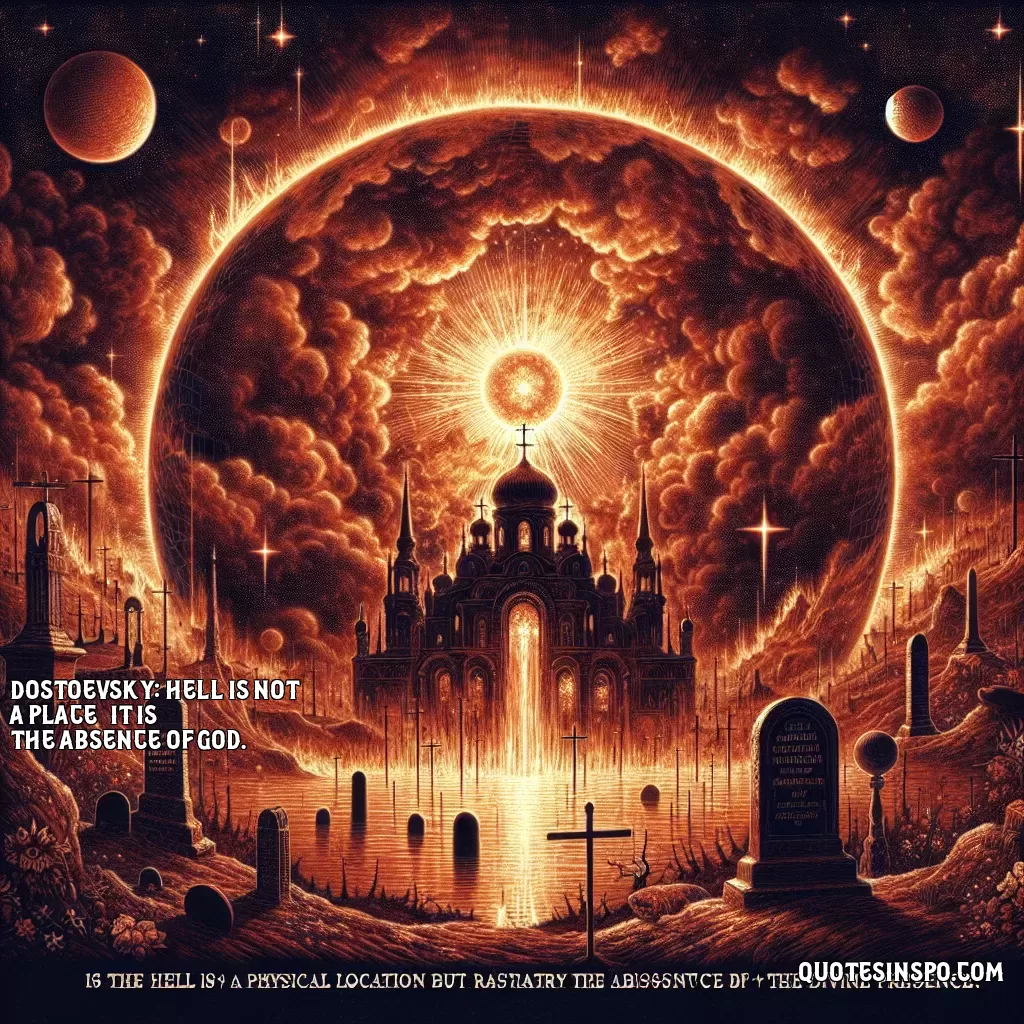
Dostoevsky: Hell is not a place it is the absence of God.
The quote "Hell is not a place; it is the absence of God" by Dostoevsky reflects a profound theological and philosophical perspective on the nature of suffering, isolation, and divine presence. Traditionally, hell is often conceived as a physical place of punishment and torment. However, Dostoevsky invites us to reconsider this notion, suggesting that hell is not about fiery pits or physical pain, but rather about a profound spiritual desolation. In this context, the absence of God implies a state where one is completely disconnected from the divine. It suggests a condition of ultimate alienation and loneliness, where the soul is deprived of the comfort, guidance, and love that God's presence provides. This absence can lead to a deep existential suffering, as the individual might feel purposeless and abandoned, lacking the moral and spiritual compass that God's presence offers. Dostoevsky, known for his exploration of complex moral and spiritual themes, emphasizes the importance of divine connection as central to human experience. The absence of God can symbolize the ultimate despair and lack of meaning, where individuals are left to confront their inner turmoil and moral failings without any hope for redemption or transcendence. This concept can also be interpreted metaphorically. It suggests that "hell" can occur in our earthly lives when we experience profound despair, struggle with moral dilemmas, or endure a sense of abandonment. The quote encourages reflection on the importance of spiritual fulfillment and the pursuit of a life aligned with divine truth and love. It invites individuals to seek a deeper connection with the divine to overcome suffering and find peace.
Quote By: Fyodor Dostoevsky
Fyodor Dostoevsky (1821–1881) was a renowned Russian novelist and philosopher, best known for his profound exploration of human psychology and morality. His major works, including "Crime and Punishment," "The Brothers Karamazov," and "The Idiot," delve deep into themes of guilt, faith, and the human condition, reflecting both his personal struggles and the turbulent socio-political landscape of 19th-century Russia. Dostoevsky's legacy endures as one of the greatest literary figures, influencing countless writers and thinkers worldwide.
Bio added on: 2025-02-18 18:49:19